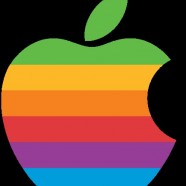
Apple has clearly been a worldwide leader in innovation. Their brand mission states “we’re on the face of the earth to make great products”, and they certainly have proven themselves, thanks mainly to the brilliance of Steve Jobs. But now Tim Cook is broadening the Apple brand to also “make a significant contribution to culture”, and “enable customers to engage the world in more meaningful ways”.
This additional dimension to Apple’s company brand represents an extraordinary transition to a next generation concept for why a corporation exists and what it should stand for. The traditional “reason for being” for a corporation has involved maximizing shareholder wealth, but this supplemental goal of “advancing humanity” initiated by Tim Cook (plus other “CEO Statesmen” like Mark Zuckerberg) has long-lasting implications. Tim Cook’s emphasis on supporting social issues was summed up in his recent statement to investors: “We do things because they’re just and right. If you want me to make decisions only on the bottom line, then you should get out of the stock.”
While Apple is known for its revolutionary product innovations, it is their customer friendly design and services that has always been their hallmark for fame, as well. Millennials have been a key driving force behind Apple’s success, so it is not surprising that these emerging brand values of Apple like trust, human rights and dignity, environmentalism and privacy are consistent with the passions of this younger target segment. And there is also a business rationale for this focus. As Tim Cook stated, these Millennials represent a much bigger target market than religious conservatives, and it is critical for Apple to emotionally connect and bond with them, which is what branding is all about.
The importance of trust is paramount in the mindset of these Millennials. The virtues of trust, integrity and transparency also reflect the values of the Apple brand today and help explain its obsession with consumer privacy and security, including its current clash with the Government over opening up their iPhone for FBI analysis. Relevant examples of their attitudes (source: Edelman 2014 trust barometer):
- 87% of Millennials believe companies should place equal weight on society’s interests and its business interests (e.g. shareholder value)
- 72% would recommend a brand that supports a good cause over one that doesn’t (a 39% increase since 2008)
- Trust in Government is at an all-time low, just 41% among all Americans (and lower among Millennials), and it is the least trusted institution in the U.S.
- Meanwhile the most trusted industry is technology at 79%, which includes Apple
Apple’s passion to protect consumer privacy has important social and economic implications around the world too. China is Apple’s second largest market – consumers there spent $59 billion on Apple products in 2015. The security of its iPhone has caused it to become a status symbol as well, since Chinese consumers are always worried about hacking and cybercrime, especially by their Government. If Apple acceded to U.S. law enforcement demands to open up the iPhone in the San Bernardino case, Beijing would undoubtedly ask for a similar tool. If Apple refused, it would surely face a battery of penalties.
Tim Cook’s mission is to nurture a global base of technophile supporters, and also shaping public policy beyond Apple’s immediate business interests. In this sense he has become a leading CEO-Statesman, similar to other corporate leaders of a century ago, like Henry Ford campaigning for world peace and Andrew Carnegie promoting universal education. This is different from the CEO-Celebrity of the 1980s-90’s like Jack Welch, who was more focused on his own ego, management philosophy and posing for magazine covers. Tim Cook is not interested in publicity as much as crafting a meaningful legacy. The Reputation Institute, a noteworthy think tank, estimates that only one third of a CEO legacy is attributed to financial performance, with the rest influenced by perceived leadership and corporate citizenship.
Just as Apple has so radically changed our lifestyle with its innovative products, Tim Cook is leading the way for transforming corporate branding to become more socially conscious and influential. As Tim Cook stated, Apple’s contribution to society and culture will depend on what the brand does, and not just what the brand is.


